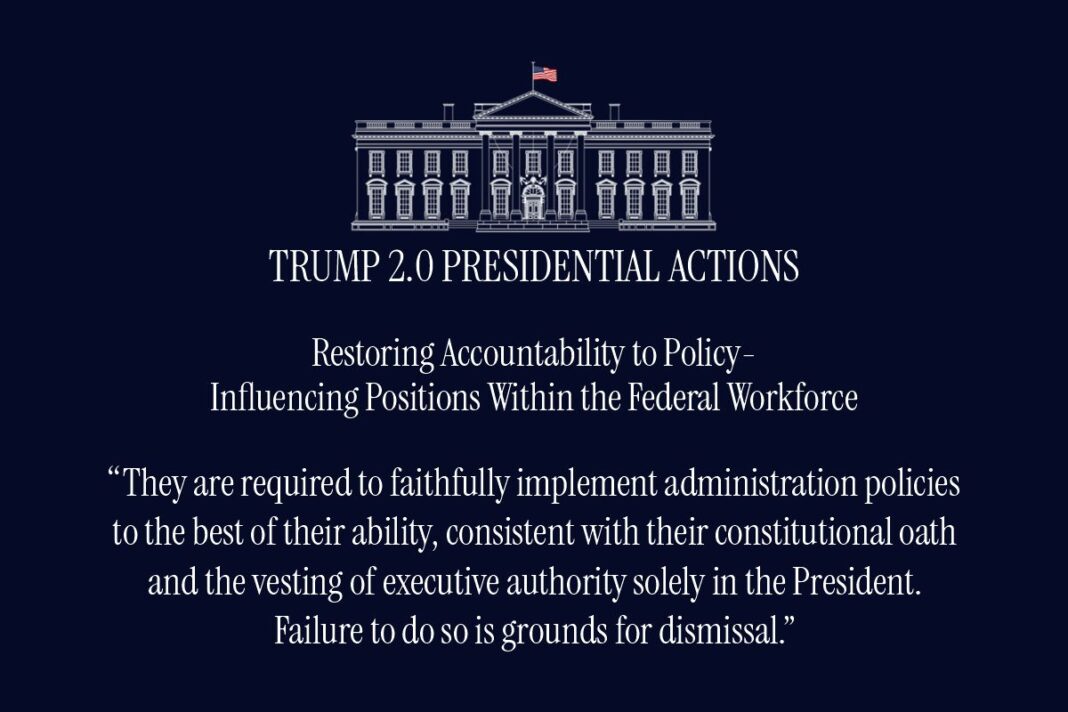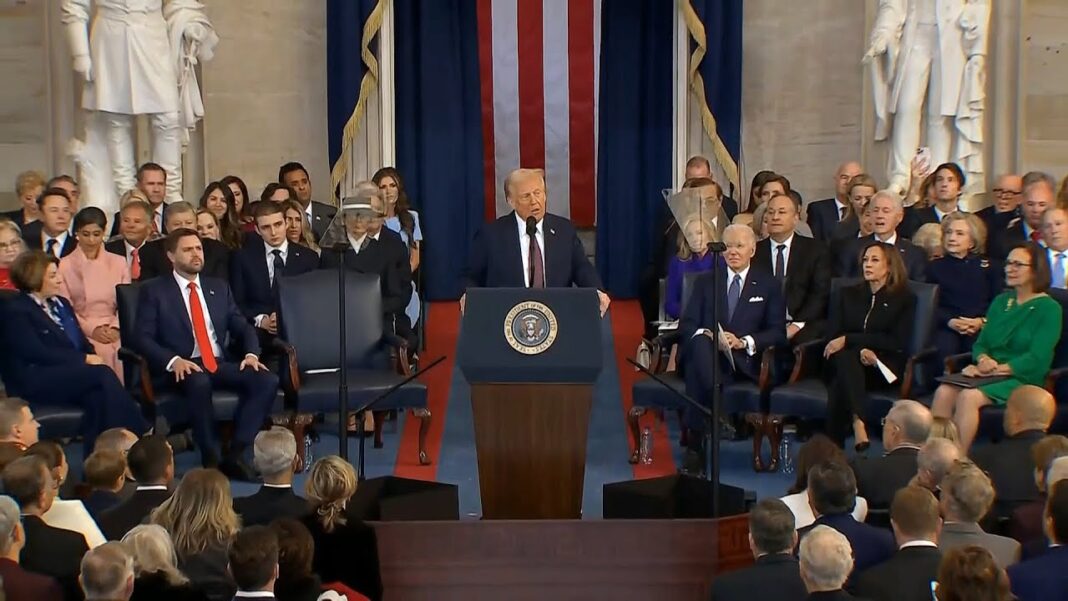The new chief executive hopes to replace federal government managers who fail to follow or implement his policies.
Newly inaugurated President Donald Trump signed a detailed executive order late Monday in the Oval Office that’s intended to make it easier to fire poor performers among the managerial ranks of the 2.3 million members of the career federal workforce.
The executive order (EO)—“Restoring Accountability to Policy-Influencing Positions Within the Federal Workforce”—is expected to remove many of the civil service regulations and processes that currently make it a costly and time-consuming ordeal to remove a career employee.
The new EO resurrects and makes multiple amendments to the controversial “Schedule F” EO Trump signed near the end of his first term in the White House. That EO was initiated by his Office of Management and Budget (OMB) director, Russ Vought, but it was issued too late to have any measurable impact on federal workers.
Trump vowed throughout his 2024 campaign to bring back Schedule F, and he nominated Vought for a return engagement as OMB director. The OMB director has authority second only to that of the chief executive in shaping executive branch personnel policy.
The return edition of Schedule F has been renamed “Schedule Policy/Career,” and Democrats in Congress who are steadfast defenders of the present civil service are already moving to nullify the effort.
“The civil servants who make up our federal workforce are the engine that keeps our federal government running. They are our country’s greatest asset. We rely on their experience and expertise to provide every basic government service—from delivering the mail to helping families in the wake of natural disasters,” Rep. Gerry Connolly (D-Va.) said in a Jan. 16 statement announcing a bill to nullify Schedule F.
Connolly accused Trump of seeking to replace nonpartisan career employees with political loyalists. Connolly’s “Saving the Civil Service Act“ would bar ”any career position created after September 20, 2020, from being reclassified outside of merit system principles without the express consent of Congress.”








